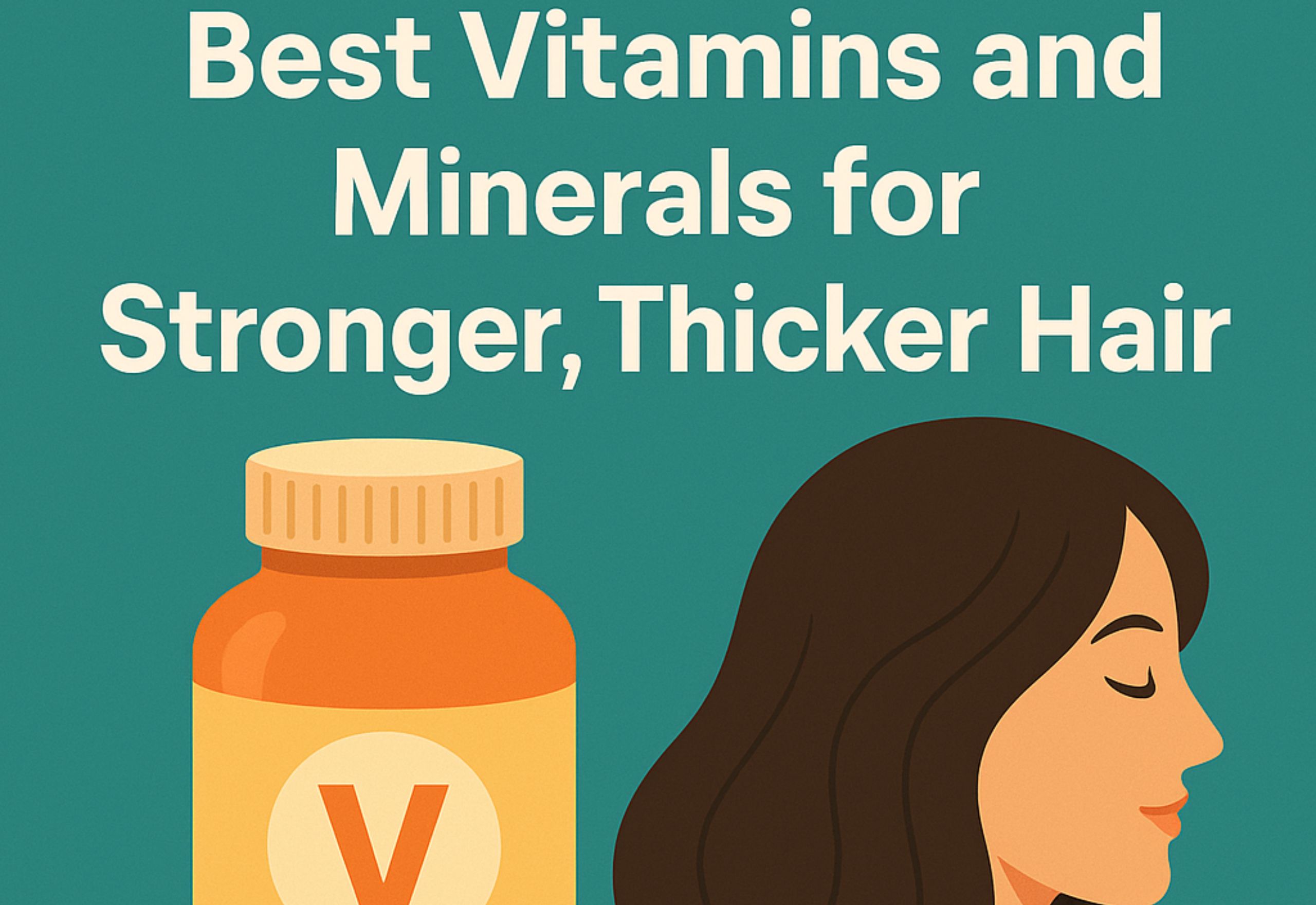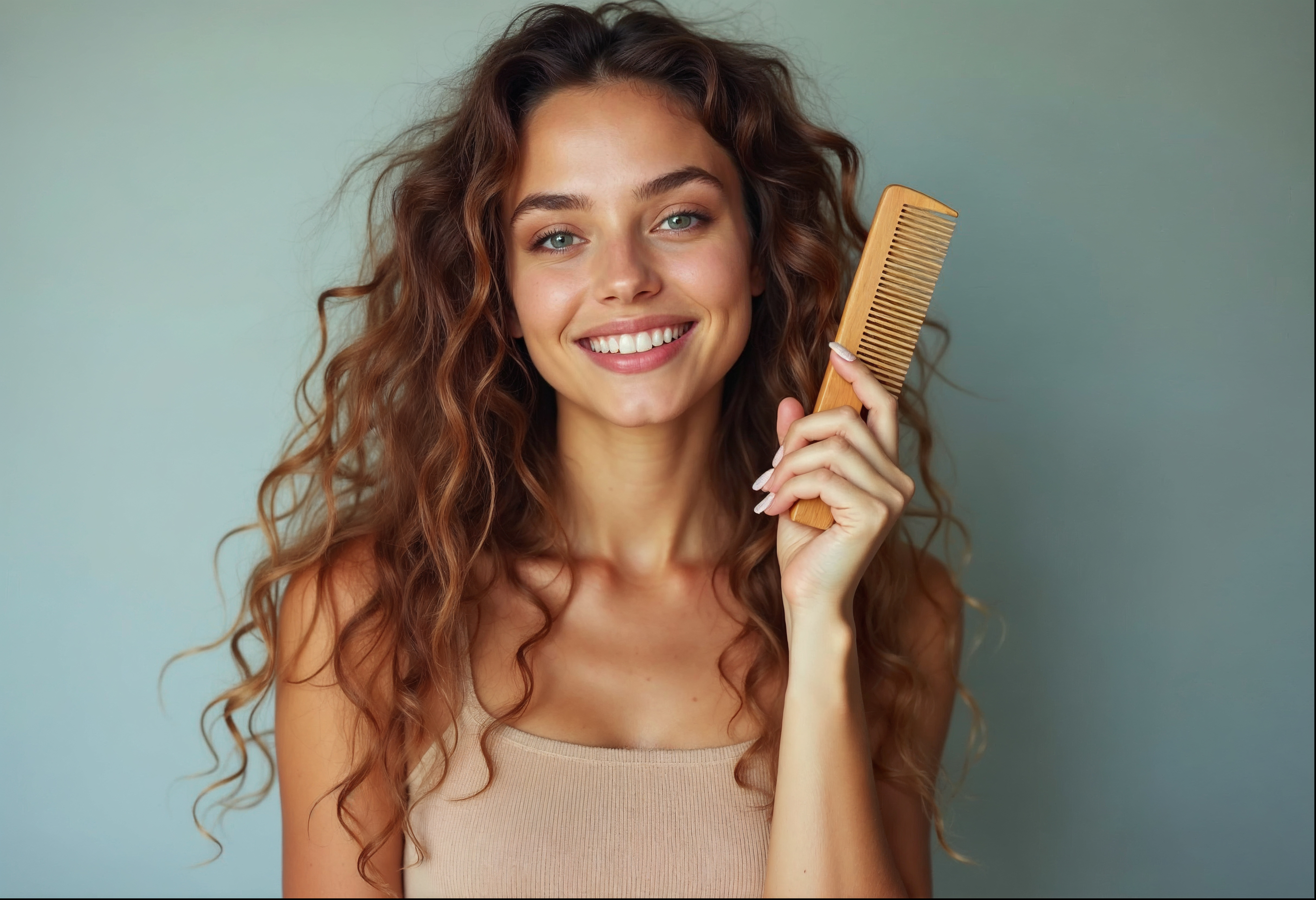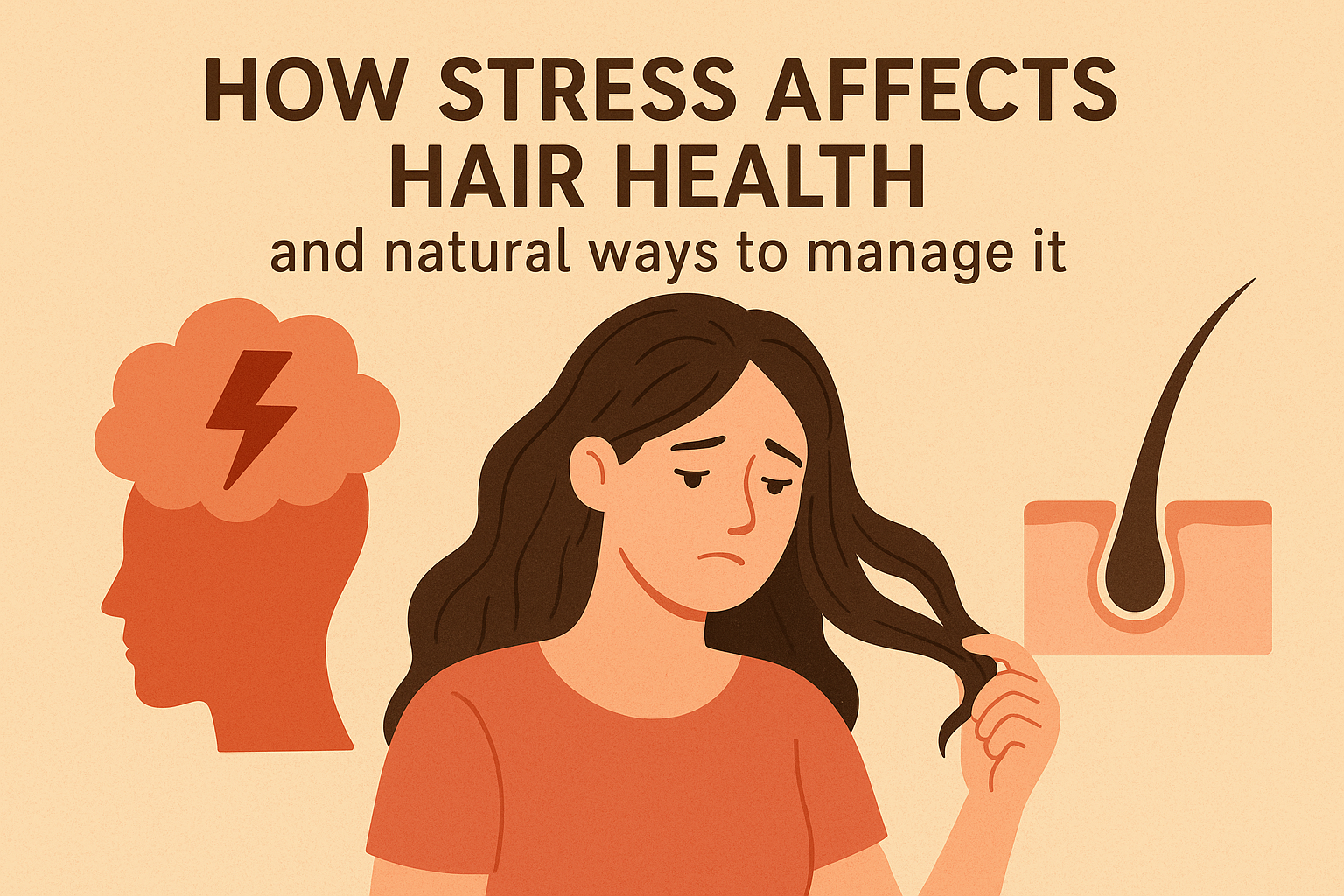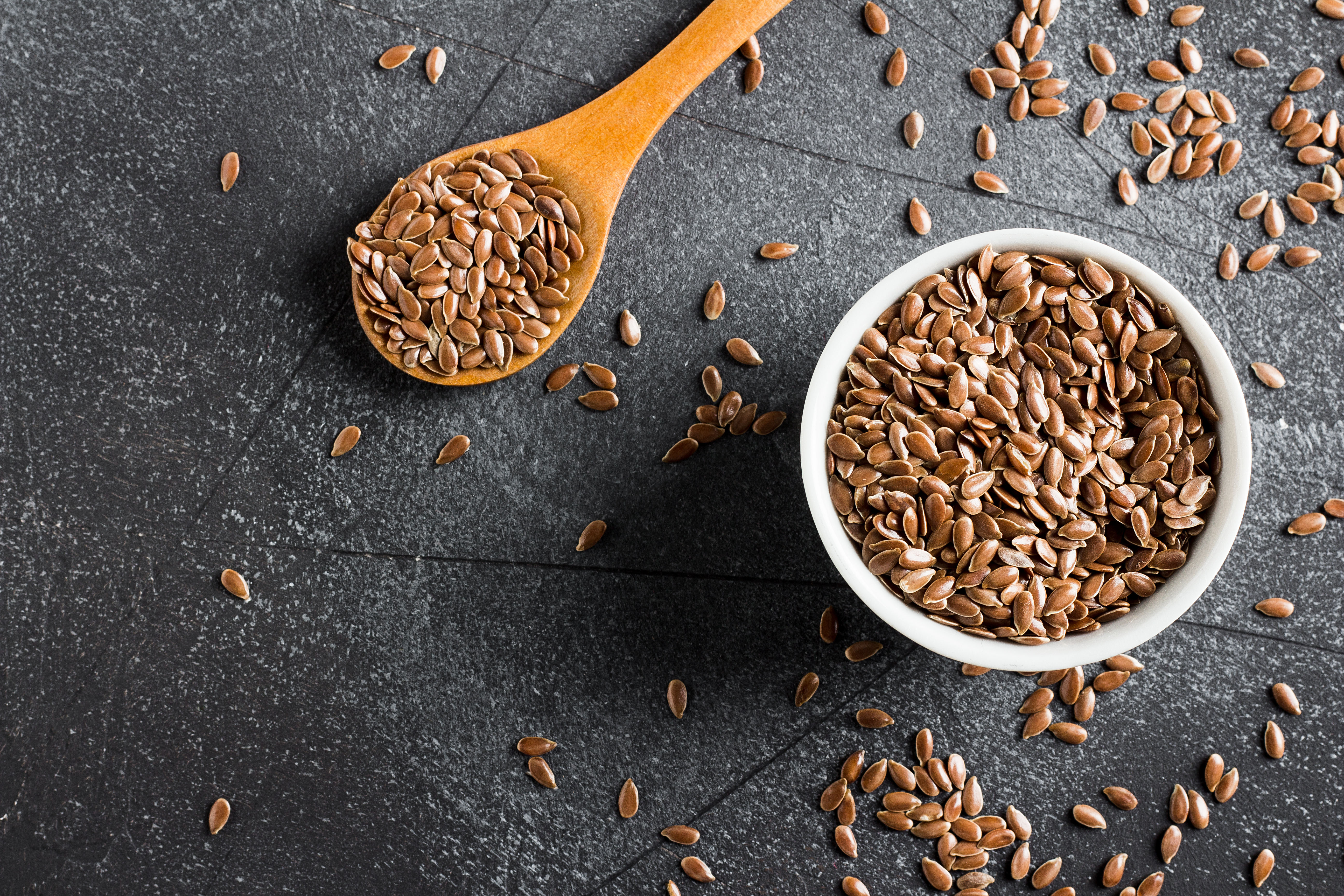If you’ve ever wanted thicker and stronger hair, you are not likely the only one. Genetics matter, but you can influence your hair by giving your scalp the right vitamins and minerals for healthy hair. Studies show that the best vitamins for hair growth are those that stimulate activity in the follicles, strengthen strands, and promote the health of your scalp.
Understand what vitamins are needed for thicker hair and the other necessary minerals, where to find it food-wise, and when to consider supplementation so that you can take a natural, long-term approach to the health of your hair.
Also Read: How to stop hair fall naturally at home?
Prepping Yourself for Thicker, Stronger Hair
Before you add the best vitamins for hair growth to your routine, you are going to need to prepare with a few key items. Doing this ensures you choose the best sources, skip unwanted supplements, and develop a balanced and sustainable approach.
Here is what you will need to be prepared with:
1: A dietary inventory: do a quick inventory of what you regularly eat, and check for nutrient voids that could be contributing negatively to hair thickness.
2: Nutrition from whole food sources: many whole food nutrition options range from fruits, vegetables, lean proteins, nuts, and seeds (which include vitamins and minerals) that nourish hair.
3: High-quality supplements: only consider a supplement if you can not reach certain nutrient needs from whole foods and follow medical advice.
4: Basic health parameters: if you suspect can deficiency (e.g., iron or vitamin D), then a quick blood test is a great next step in obtaining targeted advice.
5: Hydration: keep a water bottle handy! Avoid dehydration since it will likely negatively impact scalp and follicle health.
You are now set to start the process of moving from speculative to knowing how to support your hair with nutrients to support growing long and thick hair that lasts.
Also Read: Which oil is best for hair growth and thickness?
Enhance Hair Strength with the Right Vitamins
The right vitamins are the building blocks of hair, enabling it to thrive. Vitamins work to nourish the scalp, stimulate hair follicles, and enhance the structure of individual strands. Below are the best vitamins for hair development and the best vitamins for thicker hair, along with their scientific advantages and natural sources.
Vitamin A:
Increases the oil produced from the scalp, making hair healthy.
Sources: Carrots, sweet potatoes, spinach, kale.
Vitamin B (Biotin & B12):
Increases keratin and red blood cells, making hair tighter.
Sources: Eggs, whole grain, almonds, meat, and greens.
Vitamin C:
Helps produce collagen and aids in iron absorption, which will help prevent thinning hair.
Food Sources: Citrus, strawberry, bell pepper, broccoli.
Vitamin D:
Works to create new hair follicles and their density. Food Sources: Fatty fish, fortified dairy products, sunlight.
Vitamin E:
Increases scalp circulation, thus providing nutrients to the hair follicles. Food Sources: Sunflower seeds, almonds, spinach, avocados.
When you are getting these important vitamins and minerals to maintain healthy hair, it will give your scalp the fuel to produce stronger, thicker, and more resilient strands.
Also Read: Does scalp massage help in hair growth?
Essential Minerals to Promote Hair Growth
Vitamins are important for hair health, but minerals also play a crucial role in strengthening your hair and keeping the scalp working well. The nutrients for healthy hair work together to promote thickness, shine, and strength.
Iron – Supplies Oxygen to Hair Follicles
Iron helps red blood cells carry oxygen to hair follicles, which activates their growth cycle. Iron deficiency is one of the leading causes of people seeing thinner hair.
Food Sources: Lean red meat, lentils, spinach, and pumpkin seeds.
Zinc – Repairs and Protects Hair Tissue
Zinc aids in the repair of hair shaft tissue and regulates oil production on your scalp. Low levels of zinc can result in shedding hair and not having a healthy follicle.
Food Sources: oysters, chickpeas, beef, and cashews.
Magnesium – Strengthens Hair Structure
Magnesium is used in protein synthesis, which means it plays a part in keratin formation (keratin is the main protein in the hair shaft).
Food Sources: sunflower seeds, mushrooms, legumes.
Zinc- Help Reinforce Hair Follicles from Damage From Oxidative Stress.
Zinc is like an activator to allow hair to grow and protect against oxidative stress that causes damage to hair follicles.
Food Sources: pumpkin seeds, chickpeas, lentils, and lean meat.
Including minerals in your diet along with the best vitamins for hair growth will provide a complete nutrient profile for strengthening and thickening the hair from the root all the way to the tips.
Feed Your Hair with Everyday Foods
Whole foods are the best way to get vitamins and minerals for healthy hair, as they enhance absorption while supporting natural nutrient synergy to help you get thicker hair while preventing the risks of over-supplementing.
Suggested Tips to Build a Healthy Hair Plate:
1: Aim each day to eat a rainbow of fruits and vegetables for a large variety of vitamins and minerals that contribute to healthy hair.
2: Combine lean protein with plant-based foods that help support the hair structure and function of your scalp.
3: Opt for whole grains, fresh fruit and vegetables, and minimally processed protein where available, as they could be higher in nutrients.
4: Add healthy fats, like avocados, nuts, and olive oil, to allow for the absorption of fat-soluble vitamins needed for hair growth.
5: When it comes to achieving lasting hair health, aim to eat consistent meals versus relying on the “superfood” of the moment.
Daily Hair-Nourishing Food Plan:
1: Morning: Greek yogurt topped with berries and chia seeds
2: Midday: Quinoa salad with chickpeas, mixed greens, and a drizzle of olive oil.
3: Afternoon snack: A handful of walnuts enjoyed with a sliced apple.
4: Evening: Baked trout, steamed vegetables, and brown rice.
When you focus on diversity and balance of nutrients, you provide a constant supply of the best vitamins for hair growth and minerals that promote thickness, all through tasty, everyday meals.
Also Read: Is leave-in conditioner good for frizzy hair?
Utilizing Supplements Wisely for Thicker Hair
The best way to obtain your vitamins and minerals for healthy hair is via a balanced diet, but supplements can be valuable if you have an established deficiency or your diet cannot fulfill your requirements. The critical factor is to select them appropriately and use them in safe, healthful amounts.
When to Use Supplements
1: You experience low blood levels of a nutrient (based on a test, for example, iron, vitamin D).
2: Your diet is restrictive (vegetarian, vegan, or there are certain allergies).
3: You are recovering from an illness or surgery and have issues with nutrient absorption.
How to Select Specific Supplements
1: Choose supplements with B vitamins (typically B3 and B12), biotin, vitamin D, vitamin E, and at the appropriate time, iron and zinc.
2: Choose third-party quality-certified brands.
3: Avoid megadosing vitamin A, iron, and selenium due to their association with hair loss.
Recommended Adult Doses
1: Biotin: 30-100 mcg/day
2: Vitamin D: 600-800 IU (higher rates with deficiency)
3: Vitamin E: 15 mg/day
4: Iron: 18 mg/day for women, 8 mg/day for men (does vary with age and needs)
5: Zinc: 8 mg/day for women, 11 mg/day for men
Supplements can be a helpful part of your hair care program, but only as an addition to good nutrition, good hydration, and regular self-care. Keep in mind that balance is the goal, not overdoing it.
Enjoy a Hair-Healthy Lifestyle to Support Long-Term Strength
Your daily habits work in collaboration with the best vitamins for hair growth to help maintain thickness and strength in your long, stubborn strands.
1: Stay hydrated: Aim to drink close to 2 liters a day to keep your scalp properly hydrated.
2: Manage stress: It is important to stay calm during stressful times for the protection of the hair growth cycle.
3: Sleep enough: Aim to sleep 7–9 hours every night and allow time for your natural hair restoration cycle.
4: Limit damage: Avoid heat, chemicals, and tight hairstyles to limit the risk of damage.
5: Care for your scalp: It is important to give your scalp a gentle massage to improve the circulation, which will be responsible for promoting the delivery of vitamins and minerals, which will be beneficial for healthy hair.
Together, your consistent habits will help build on the benefits of your nutrition plan and maintain hair strength in the long term.
Also Read: Can I use hair serum daily?
Conclusion
Healthy hair isn’t built overnight; it’s the result of habitual care from the inside out. When you focus on the key vitamins for hair growth and important minerals, you give your hair follicles the fuel to produce hair strands thicker and stronger. Coupled with proper hydration, balanced eating, and healthy lifestyle behaviors, these integrative nutrients can have profound results long-term.
Ultimately, the most significant step is to take the first step. Small, consistent progress can noticeably change your hair over time. Add one nutrient-rich meal, or fix one deficiency. With the proper patience and vitamins and minerals for healthy hair, you can support natural restorative patients because hair can always feel as good as it looks.
FAQs
1. Can a lack of hydration contribute to hair shedding?
Yes, dehydration reduces the delivery of nutrients to the hair follicles, producing brittle hair, even if you are taking some of the best vitamins for hair growth.
2. How soon can I see thicker hair after starting vitamins?
Hair grows an average of 1-1.5cm each month. Therefore, you may start to see a difference in your hair thickness after about 3-6 months of taking the vitamins regularly.
3. Can taking too much of a supplement harm my hair?
Yes, excessive vitamin A, iron, and selenium can trigger hair loss. Always adhere to the recommended safe doses.
4. Does age slow down hair growth?
Yes. Hair follicles shrink with age. However, eating a well-balanced diet with vitamins and minerals that promote healthy hair will help slow down the process.
5. Does stress affect the nutrient levels of hair in the body?
Yes, chronic stress may deplete the zinc, magnesium, and B vitamins, which could worsen the hair over time and potentially lead to hair loss.
6. Do hairstyles obstruct live nutrients from going to my hair?
Not really, although a style that is too tight can cause traction alopecia even with a good nutritional diet.
7. When is the best time to take my vitamins?
Water-soluble vitamins B and C should be taken first thing in the morning with breakfast. Fat-soluble vitamins A, D, E, and K should be taken when consuming fat in a meal.
8. Will nutrient-related hair thinning effects be reversible?
In most cases, yes, correcting a deficiency will bring the hair follicles back into use and may provide thicker hair.
9. Can plant-based diets be risky for our hair health?
They can be if they are deficient in B12, iron, or zinc, but we can always look towards fortified foods and supplements to resolve this issue.
10. Is scalp massage effective if we don’t take vitamins?
It increases blood flow, but it can’t make up for what our bodies lack in terms of vitamins and minerals to maintain healthy hair.



